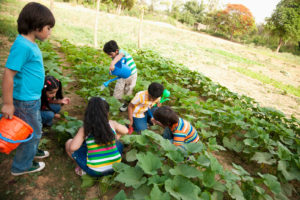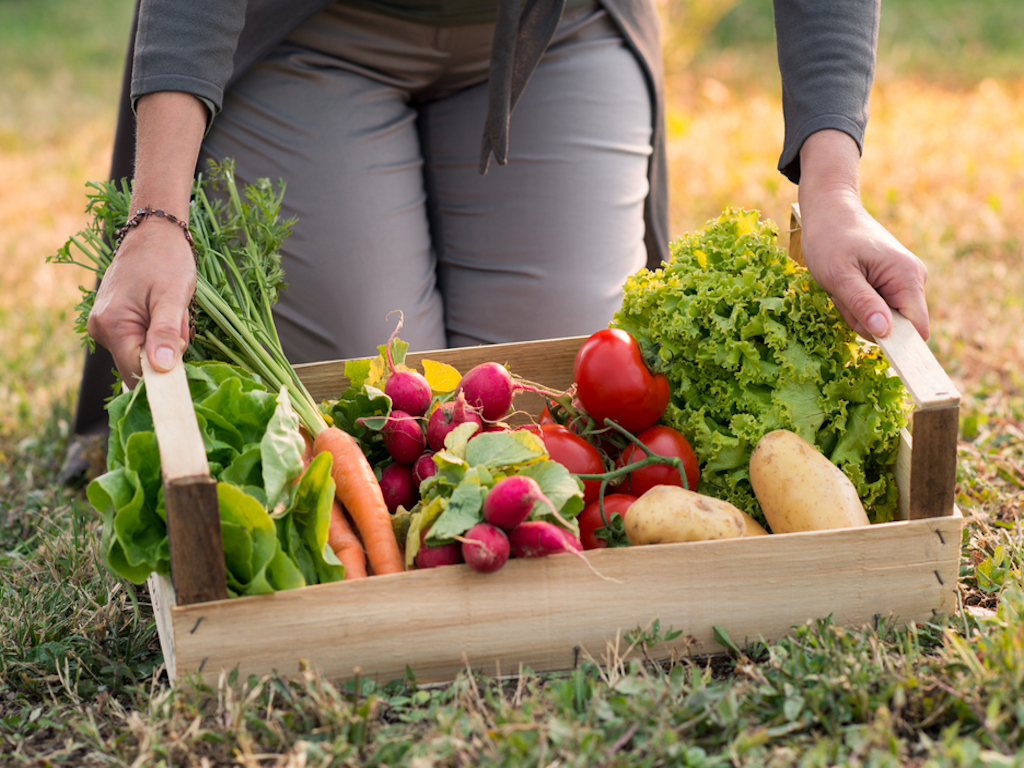Although it’s a current trend, organic farming was always around. In fact, it was present in the latter part of the Stone Age. However, it seems like organic farming is going through some sort of Renaissance. More and more people are becoming aware of how important chemical-free foods are, how farming affects animals, and lastly, what the cost of it all is in terms of environmental degradation.
But is organic farming just a fad? Are people going crazy for it just because it seems like a good thing to do? Nope! There are legitimate concerns that lead so many of us to find our food sources in organic agricultural products. But let’s not get ahead of ourselves. Let’s delve into this topic a bit more and explain all significant organic farming benefits and facts so that you can better understand what’s it all about.
How Do Organic Farms Work?
Before we engage in all the pros, we first need to explain how people produce organic food. Namely, this type of farming combines three agricultural principles. These include soil fertility, crop rotation, and, thirdly, pest control. Saying it like this might sound like it’s all too complex for regular folks like you and us, but that’s where you’re wrong. All this is just a fancy way of saying — allow nature to do its job.
Organic production offers numerous fruits, vegetables, dairy, eggs, grains, etc. And what makes them natural is the fact that they don’t differ much from what they would be if there were no people around. This is due to not using pesticides and toxic fertilizers for plants and hormones and antibiotics for livestock, which all negatively affect our health. Sadly, statistics show that only 2% of all American food supply comes with an organic certification.
You Have Less Exposure to Harmful Chemicals
Like we’ve said, one of the main pros of organic farming practices is that people who eat such food have less exposure to toxic chemicals. This is because there are no pesticides used, unlike in conventional agriculture. One of the main bad guys when it comes to toxic pesticides is glyphosate. However, after just one week of eating organic food, its content in human bodies drops by around 70%, which is more than great.

Naturally, toxic chemicals don’t just affect us directly through our diets. Pesticides modify the quality of air, water, wildlife, and soil. There is, luckily, an alternative to all this, and it’s called organic food production. Without the use of pesticides, we improve many if not all aspects of farming and, in turn, positively affect our health. But does all this really improve the plants that we eat? Are veggies and fruits better? Let’s see.
Healthier Crop Products
Modern, conventional farms produce tons of food. The whole world practically eats their products, and it’s been like that for some time now. The reason for so is pretty obvious. Over the years, the demand has kept growing, and to satisfy it, we need fast and easy food production. In other words, we require mass production. But is it really like that? Can’t we go back to organic standards and healthier food? Yes, we can.
Organic farmers aim to produce healthy fruits and vegetables both for them and their families, as well as for the market. And in most cases, even laypeople can see the difference between their products and ones that come to us through mass production. For example, single pieces of fruits and veggies have actual taste and appear more natural. They are not like something that comes out of a 3D printer.
Improved Soil Health
When it comes to fertility, it basically comes down to using healthy soil. This, in turn, leads to better crops and, of course, animals. It also diminishes how diseases affect them and ups the farm’s overall productivity. To have healthy soil, farmers tend to use cover crops, animal and green manure, and compost.
Compost is a mix of various decaying materials and waste and is fully organic. It’s common in both organic farming and home gardens. To make it, people combine small branches, grass, and fallen leaves. It works by increasing the nutrient levels in soil, as well as reducing the need for toxic fertilizers.
Additionally, cover crops and manure can increase the health of the soil. Animal manure comes from cows and horses, while the green one comes from specifically grown plants. Cover crops serve the purpose of protecting the soil by helping it sustain its compactness, which leads to fewer nutrients evaporating.

Organic Farming Reduces Global Warming
Although most associate organic production with avoiding GMOs, there are other pros as well. Notably, organic farming can help fight global warming. The problem comes from the amount of CO2 that livestock and crop keep producing. During the last 20 years, the amount of carbon dioxide has increased by about 14%. Yet, going organic can mitigate this process and hopefully bring those numbers down.
But that’s not all. Organic farming is also positive if we want to reduce the amount of energy we use for food production. To create the likes of fertilizers, pesticides, and other toxic chemicals, we have to use energy. However, organic farming reduces energy consumption somewhere between 30 and 70% by one unit of land. Furthermore, another organic farming fact is that it can help store more carbon inside the soil. This is important because CO2 doesn’t go up in the air and actually raises soil productivity by some numbers.
Supports Ecosystem Growth
Before we conclude this text, we need to mention how organic farming promotes ecosystem growth. Although the first thing that people mention when they’re talking about the pros of this type of food production is how these veggies and fruits affect our health, it’s not just about us. We are one with our planet, regardless of how cliché that might sound. Whatever we do matters because it impacts all other life forms on Earth.
For example, doing things organically works in favor of worms and nematodes that live inside the soil. They, in turn, help keep more moisture inside, which later helps plants and animals have sources of nutrients. And with plants and animals healthy and in numbers, the whole ecosystem keeps going like one big wheel. Yet, the sad part is that we often forget about this, as we’re short-sighted and looking for immediate profit.
Luckily, the times are changing quite a bit in the last couple of years. More and more people are beginning to realize how important it is to be a positive force on our planet. From numerous eco-organizations around the world to pure-hearted individuals, it seems like we’re beginning to turn things around. At least, the importance of ecology. Therefore, going organic and supporting its production should be on everyone’s shopping list.
